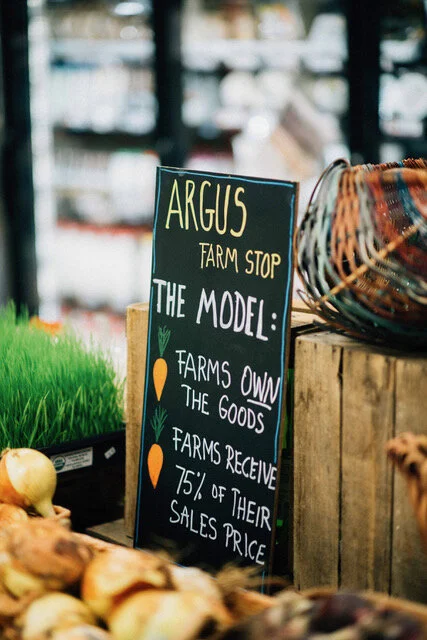Yes, Virginia, there is a Michigan Artisanal Cheese
And surprise – according to the Michigan Department of Agriculture, Michigan is the 8th largest producer of cow’s milk in the country, with 300,000 cows producing 5.7 billion pounds of milk. While everyone in Michigan probably knows about Pinconning cheese produced on a massive scale and sold in hard orange vacuum packed bricks, less well-known is that Michigan also has a few small scale cheesemakers turning out some very unique regional specialties. Some of these special cheeses include an amazing nutty and firm Raclette from Leelanau County and John Loomis’ incredible goat cheeses at Zingerman’s in Ann Arbor.
Cheese in Brief
Although the world of cheese contains hundreds of varieties, at Morgan and York’s fabulous cheese class they teach that cheese falls into 6 main types of “recipes.” These categories are: 1) Fresh (like Fromage Frais or Mascarpone), 2) Soft (like Chevre or Mozzarella), 3) Washed rind (Munster, Epoisses), 4) Cooked curd (Comte, Gruyere), 5) Blue (Gorgonzola, Stilton), and 6) Hard (Cheddar, Piave). Each individual cheese is its own little ecosystem, with both good bacteria acting to create many of the nuanced flavors and forms of the cheese and bad bacteria that can be kept in check with cleanliness and the health of the good bacteria. Interestingly, there is a Michigan made cheese in each of the main categories of cheese except blue.
Cheese *IS* Milk
Because cheese *is* milk, concentrated 5-10 times in the process of cooking, pressing, and aging, the quality, treatment and taste of the milk that makes the cheese are paramount in the ultimate fullness and flavor of the finished cheese.
Getting Milk to the Cheesemaker: the Raw vs. Pasteurized Debate
One of the main debates in Michigan and elsewhere around artisanal cheese is the “raw v. pasteurized” milk war. Many myths surround the raw v. pasteurized debate, but it only makes sense (and thousands of years before pasteurization prove) that well-produced and carefully handled milk, whether raw or pasteurized, is what makes great cheese. Any cheese can be contaminated either in the making or in the post production phase if sanitary procedures are not followed. Time magazine recently ran an article about raw milk farmers in Michigan – some people believe that the large dairy interests in the state are working to drive out smaller farmers supplying even highest quality raw milk. Although pasteurized milk cheese is also excellent, a war on raw milk cannot benefit cheese lovers.
Whether made with raw or pasteurized milk, one of the reasons that there are not more Michigan artisanal cheeses is the problem that a small cheesemaker has with getting a consistent supply of really superior milk. While 30 years ago there were over 12,500 dairy farms in Michigan, in 2005 there were but 2800. And only a few of those (mostly small family-owned farms) producing the quality of milk needed for great cheese.
Cheeselovers Need Great Dairies
Some dairies close to us that produce milk that is good enough to turn into incredible cheese are:
- Calder Dairy: in Carleton, MI supplying milk, butter, cream, yogurt, cottage cheese and still offering home delivery.
- Grassfields Farm in Coopersville, MI makes Raw Milk Gouda, Edam and Leyden cheeses along with their own special Polkton Corners cheese.
- Cook’s Farm Dairy in Ortonville, MI also makes their own ice cream which they sell on site.
Supporting Michigan Cheesemakers
Because the quality of the milk and way in which the cheese is made matter so much to the final product, it pays to know your cheesemaker. And your dairy farmer. And your cheesemonger cannot be forgotten. A Michigan Cheese Tasting in April, 2007 sponsored by Slow Food Huron Valley, showcased the cheeses of four Michigan cheesemakers. We tasted close to a dozen different cheeses along with bread and other delicious side dishes provided by Zingerman’s.
- Grassfields Farms makes their Gouda and Edam in Coopersville, Michigan. With 125 cows in their dairy, they are set to be certified organic this summer. The cheesemaker is a fourth generation farmer who has been making cheese for five years. You can buy Grassfields Gouda at the People’s Food Coop on Fourth Ave. in Ann Arbor.
- Traffic Jam and Snug makes Asiago and a Hickory Smoked Colby once a month. The cheesemaker also makes the beer at this local Detroit brewery and creamery. They are making only a batch of cheese a month. Traffic Jam and Snug is in Detroit.
- Leelanau Cheese Company at Black Star Farms makes a special Raclette. In Sutton’s Bay, MI, Black Star focuses on making European style cheese and specializes in Raclette with pasteurized milk from Martin Farm Dairy. You may have to go up north to find this one.
- Zingerman’s Creamery and master cheesemaker John Loomis specialize in fresh goat and cow’s milk cheese using milk from a goat milk cooperative and from Calder dairy. They make 2 different cheeses every day which are available at Zingerman’s of course: the Deli, the Creamery, the Roadhouse. And also at the Farmer’s Market on Saturdays.
Learn More about Cheese!
To appreciate cheeses from Michigan and beyond, some excellent places to learn include:
- Morgan and York, offering a 3-session classes on the regions, making, and taste of the world’s cheeses in their fabulous Cheese Discovery Tour.
- Zingerman’s has many tasting events, often including cheese. The wonderful Zingerman’s Creamery offers more than a dozen housemade cheeses with tours of the Creamery every Sunday.
June is National Dairy Month
Don’t forget: June is National Dairy Month. Michigan cheeses are amazingly good and they want you to eat them. And the more we eat Michigan cheese, the more the cheesemakers will want to make.

